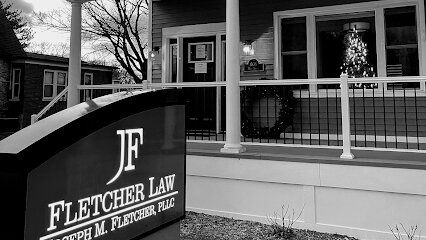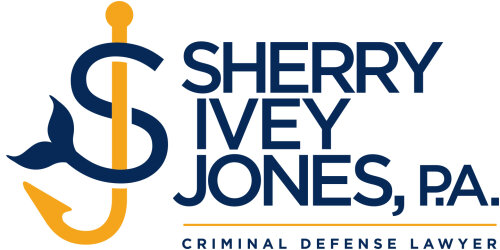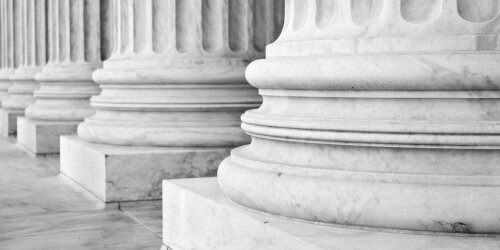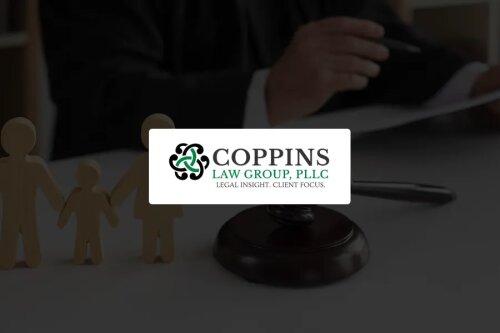Best DUI & DWI Lawyers in New York City
Share your needs with us, get contacted by law firms.
Free. Takes 2 min.
List of the best lawyers in New York City, United States
About DUI & DWI Law in New York City, United States
In New York City, DUI and DWI offenses fall under the state’s Vehicle and Traffic Law. The key distinctions are between driving while intoxicated (DWI) and driving while ability impaired (DWAI). A DWI generally involves a BAC of 0.08 percent or higher or impairment that affects driving ability, while DWAI covers impairment with a BAC below 0.08 percent or impairment by drugs. NYC residents should also know about aggravated DWI, which involves a higher BAC and carries harsher penalties.
Enforcement combines police stops, field sobriety tests, and chemical testing. If you are charged, penalties can include fines, license suspension, mandatory programs, and possible jail time depending on the offense and prior record. Administrative actions by the New York State Department of Motor Vehicles (DMV) may occur separately from criminal charges.
Leandra's Law requires ignition interlock devices for certain DWI offenses when a child is in the vehicle. This is an important consideration for NYC defendants facing DWI with a minor present.
For a concise overview and official references, consult New York state resources. See the New York DMV and related government materials for details on testing, suspensions, and ignition interlock requirements.
Source: New York State Department of Motor Vehicles (DMV) and the Leandra's Law provisions
Why You May Need a Lawyer
Legal representation is critical in NYC due to the complexity of DWI and DWAI cases and the potential impact on driving privileges. A skilled attorney can tailor defenses to New York law and local court practices. Below are concrete, NYC-specific scenarios where hiring a lawyer is advisable.
- You were charged with DWI after a stop in Manhattan or one of the boroughs and your BAC was above 0.08 or you were deemed impaired. An attorney can challenge the testing procedures and evidence, including breath or blood test results.
- You face a DWAI charge after a traffic stop in Brooklyn for suspected impairment with a BAC below 0.08. An attorney can contest impairment claims and seek reduced charges or penalties.
- A child was in the vehicle at the time of your arrest. If Leandra's Law applies, an attorney can assess ignition interlock requirements and eligibility for program options or relief.
- You received an administrative license suspension from the DMV for testing issues or refusal. A lawyer can pursue DMV hearings, gather evidence, and seek reinstatement or limitations on suspension duration.
- You already have prior DWI/DWAI convictions or a history of multiple offenses. An attorney can evaluate escalation risks, jail exposure, and sentencing options under New York law.
- You were charged with aggravated DWI (BAC 0.18 or higher). An attorney can address higher penalties and potential diversion or plea strategies appropriate to NYC courts.
Local Laws Overview
New York City operates under state laws that apply across the state. The primary statutes governing DUI and DWI include references to the Vehicle and Traffic Law and related provisions. Understanding the names of these laws helps you navigate court documents and communications with counsel.
Vehicle and Traffic Law (VTL) 1192, 1192.2, and 1194 form the backbone of DWI, aggravated DWI, and the implied consent testing framework. These sections define driving under the influence, higher BAC thresholds, and testing requirements for drivers. For many NYC cases these statutes determine charges and potential penalties.
Aggravated DWI under VTL 1192.2 covers BAC thresholds of 0.18 percent or higher. This offense carries enhanced penalties and, in some cases, different charging or sentencing avenues in New York courts. Penalties scale with prior offenses and other aggravating factors.
Implied Consent to Chemical Tests under VTL 1194 requires drivers to submit to breath, blood, or urine testing when lawfully requested. Refusal can trigger immediate DMV license suspensions and associated consequences. The policy is designed to promote road safety while balancing due process.
An important NYC-specific extension is Leandra's Law, enacted as Chapter 1 of the Laws of 2009. It adds ignition interlock device requirements for certain DWI offenses when a child is in the vehicle. This provision increases the complexity of sentencing and monitoring for some NYC cases.
For official details, consult the NY DMV pages and state statutes. The following resources provide authoritative information on testing, ignition interlock, and related penalties.
According to the New York DMV, ignition interlock devices can be ordered for certain DWI offenders, especially when a minor is present in the vehicle under Leandra's Law.
Source: New York State DMV - Ignition interlock and related DWI guidance
Implied consent means drivers must submit to chemical testing when requested by law enforcement, with suspension consequences for refusals.
Source: New York State DMV - Implied consent and testing requirements
Frequently Asked Questions
What happens after a DWI arrest in New York City?
A police officer makes the arrest, and you are booked by the local court. You will likely face arraignment and possible bail considerations. A lawyer can help you plan defense strategies and manage court appearances.
What is the difference between DWI and DWAI in NYC?
DWI involves a BAC of 0.08 percent or higher or significant impairment. DWAI covers impairment with a BAC below 0.08 percent or impairment by drugs, with distinct penalties and procedures.
How long do DUI charges stay on my record in New York City?
Criminal records may persist for varying lengths depending on charges and outcomes. Convictions can result in permanent records, while some non conviction outcomes may be sealed or expunged in limited circumstances.
Do I need to hire a lawyer for a DMV hearing only?
Yes. A lawyer can attend DMV hearings to contest license suspensions and preserve your driving privileges while criminal charges proceed.
What is an ignition interlock device and when is it required?
An ignition interlock device prevents your vehicle from starting if you have been drinking. Leandra's Law can require it in cases where a minor is present in the vehicle or under other circumstances defined by the court.
How much does a NYC DUI lawyer typically charge?
Fees vary by case complexity, experience, and location. A lawyer may charge a flat fee or hourly rate. Initial consultations often guide you on expected total costs.
What is the best defense strategy for a NYC DWI case?
Strategies include challenging test procedures, maintenance logs for devices, chain of custody for samples, and establishing field sobriety test reliability. Local court rules influence strategy.
Can breath tests be challenged in New York City?
Yes. Defense can examine calibration records, operator qualifications, and adherence to testing protocols to question breath results.
What if I refused the chemical test in NYC?
Refusal can trigger an immediate DMV suspension. An attorney can help you pursue an administrative appeal and address suspension duration.
What are potential penalties for a first DWI offense in NYC?
Penalties can include fines, license suspension, and possible probation or jail time, depending on the offense and circumstances. The court may impose mandatory programs or supervision.
Do I qualify for a plea deal or diversion in NYC DWI cases?
Plea and diversion options depend on the case specifics, prior record, and the prosecutor. An attorney can negotiate terms and present favorable options when possible.
Additional Resources
- New York State Department of Motor Vehicles (DMV) - Official information on testing requirements, license suspensions, and ignition interlock rules.
- National Highway Traffic Safety Administration (NHTSA) - Drunk driving - Federal guidance, best practices for enforcement, and national statistics.
- New York State Courts - DUI and DWAI case information - Official court system resources for case timelines, procedures, and dockets.
Next Steps
- Immediately contact a New York City DUI lawyer to discuss your arrest and keep a record of all documents you receive from police and the DMV.
- Request a copy of the police report and any audio or video from the arrest to review testing procedures and observations.
- Schedule an in-person or virtual consultation within 7 days to discuss potential DMV hearings and criminal defense strategies.
- Prepare a communication plan with your attorney for court dates, DMV hearings, and any required programs or treatment assessments.
- Consider the ignition interlock requirement if Leandra's Law applies, and discuss installation timelines and costs with your attorney.
- Track all deadlines for court filings, DMV hearings, and any plea negotiations to avoid default or unnecessary penalties.
- Follow your attorney's instructions regarding testing, treatment, and reporting while your case progresses.
Lawzana helps you find the best lawyers and law firms in New York City through a curated and pre-screened list of qualified legal professionals. Our platform offers rankings and detailed profiles of attorneys and law firms, allowing you to compare based on practice areas, including DUI & DWI, experience, and client feedback.
Each profile includes a description of the firm's areas of practice, client reviews, team members and partners, year of establishment, spoken languages, office locations, contact information, social media presence, and any published articles or resources. Most firms on our platform speak English and are experienced in both local and international legal matters.
Get a quote from top-rated law firms in New York City, United States — quickly, securely, and without unnecessary hassle.
Disclaimer:
The information provided on this page is for general informational purposes only and does not constitute legal advice. While we strive to ensure the accuracy and relevance of the content, legal information may change over time, and interpretations of the law can vary. You should always consult with a qualified legal professional for advice specific to your situation.
We disclaim all liability for actions taken or not taken based on the content of this page. If you believe any information is incorrect or outdated, please contact us, and we will review and update it where appropriate.
















